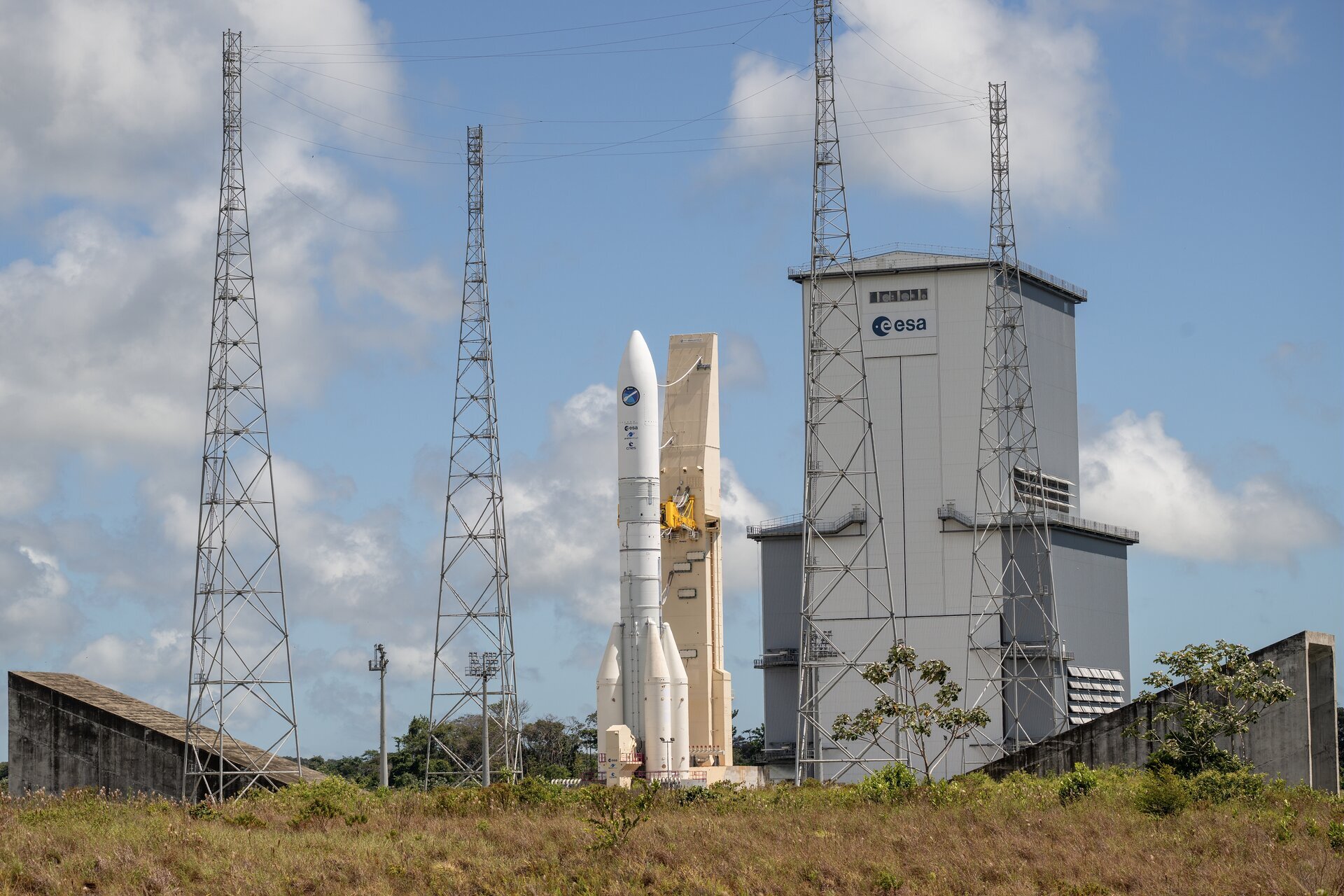21.11.2025
The European launcher Ariane 6 is to be launched into space much more frequently in future. The aim for next year is to double the number of launches compared to 2025, as Jens Franzeck, German Managing Director of ArianeGroup, announced.

So far this year, the rocket has lifted off three times from the European spaceport in Kourou in French Guiana, with another launch planned for December.
The Group is ramping up production at its sites in France and Germany for this purpose. The main stage will be manufactured in Les Mureaux, France, and the upper stage in Bremen, Germany. The latter is considered the heart and brain of the rocket, as it is responsible for controlling the final flight section and reaching the target.
In Bremen, the Group developed a serial production process - similar to assembly line production in car manufacturing. Six upper stages are to be produced in parallel at the plant in future. Ten to twelve upper stages are to be completed and delivered each year. "The target of around ten missions per year should be achieved by 2027," said Franzeck.
First flight with four boosters in spring 2026
Europe can launch larger satellites into space independently with Ariane 6. The rocket completed its maiden flight in summer 2024 late, but largely successfully. The first commercial launch followed in March of this year with the French military satellite CSO-3.
In August, the rocket was launched with the weather and climate satellite MetOp-SG, at the beginning of November with the earth observation satellite Sentinel-1D and in December, Ariane 6 is to fly into space for the European satellite navigation system Galileo.
Depending on the mission, the rocket can be equipped with two or four boosters. More boosters mean more thrust, which is necessary for launching heavier loads or reaching higher orbits. A premiere is planned for next spring: In the first quarter, Ariane 6 is to be launched with four boosters for the first time, carrying satellites for Amazon's broadband constellation into space.
Hope for Esa Ministerial Council Conference
The German CEO emphasizes the importance of cooperation between European countries. "Going it alone at a national level carries the risk that we won't get the most out of our limited financial resources," warns Franzeck.
The industrial engineer is therefore focusing on the upcoming meeting of the European Space Agency Esa. "The Esa Council of Ministers conference in Bremen next week is an opportunity for Europe to step up its commitment to Ariane 6 and new joint projects in the future field of space travel," Franzeck hopes. At the meeting, the participating countries will decide on Europe's space budget for the next three years.
Quelle: blue News
